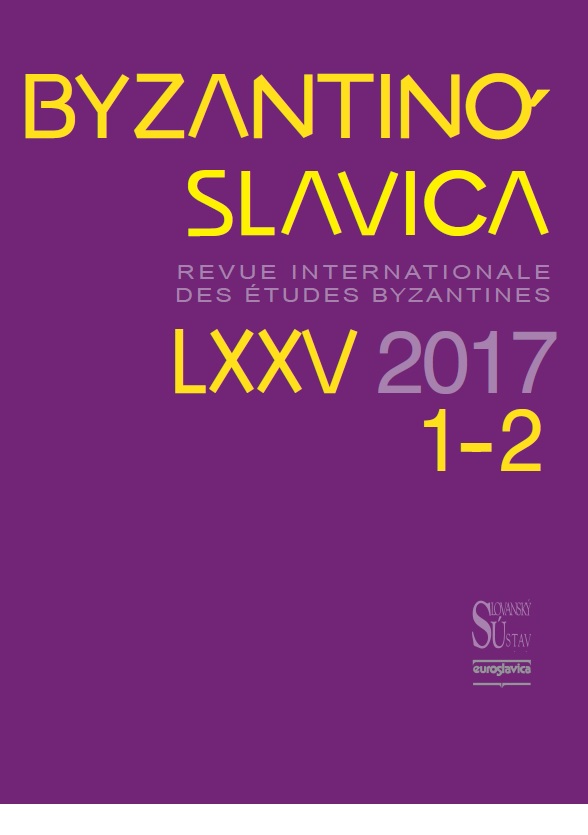Mary ‘of Alania’, Anna Komnene, and the Revival of Aristotelianism in Byzantium
Mary ‘of Alania’, Anna Komnene, and the Revival of Aristotelianism in Byzantium
Author(s): Lynda GarlandSubject(s): 6th to 12th Centuries
Published by: AV ČR - Akademie věd České republiky - Slovanský ústav and Euroslavica
Keywords: Mary of Alania;Aristotelian scholarship;education; Constantinople;
Summary/Abstract: Mary of Alania, though Georgian born, was the centre of a circle of literati in Constantinople during the early years of the reign of Alexios I. The court of her fi rst husband, Michael VII Doukas, had seen the revival of an interest in philosophy and natural science, with renewed study of both Plato and Aristotle and works composed for the emperor and court on philosophical and scientifi c topics by scholars such as Psellos, John Italos and Symeon Seth. Following this interest in natural science, including meteorology, in the 1070s, Mary continued such studies at her own court at the Mangana Palace, where she commissioned works not only on theology from Theophylact, but on natural science from Eustratios of Nicaea, who may have succeeded Theophylact as tutor to her son Constantine Doukas. Eustratios’ piece, in fact, appears to be one of a series on meteorological topics composed for the empress. This paper argues that, as the betrothed of Constantine Doukas, Anna Komnene gained her interest in intellectual pursuits from Mary, with whom she lived for several years as a girl, and that Mary’s interests played a part in shaping Anna’s, even though Anna concentrated primarily on literature and philosophy, rather than the theology and natural science which is known to have interested Mary. Anna was to play a key role in the revival of Aristotelian scholarship, as patron of a circle of scholars working on commentaries on Aristotle, Plato, Euclid and Ptolemy, a circle which included Eustratios, and her dedication to scholarship may have arisen from her upbringing in the household of an imperial woman who was genuinely interested in intellectual pursuits. Apart from her taste for learning, Anna’s attitude towards power may also have been infl uenced by the involvement of Mary in the plot of Nikephoros Diogenes against Alexios, with the hope of reinstating Constantine to the place in the imperial succession which he had lost after the birth of Anna’s brother John. In her laments over her fi ancé Anna may have been regretting the failure of this conspiracy, as much as she did her loss of status after the death of her father and accession of her brother. She never forgot that she had been betrothed to an emperor-designate and Tornikes’ Funeral Oration consoles her for the death of Constantine, to whom she had been betrothed some 60 years earlier, and her loss of imperial rank as a deliberate act of Divine Providence which allowed her to devote herself instead to scholarship, which had in the interim become so important a part of her self-identity.
Journal: Byzantinoslavica - Revue internationale des Etudes Byzantines
- Issue Year: LXXV/2017
- Issue No: 1-2
- Page Range: 123-163
- Page Count: 41
- Language: English
- Content File-PDF

